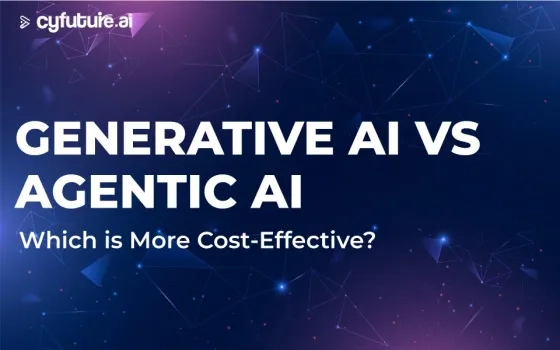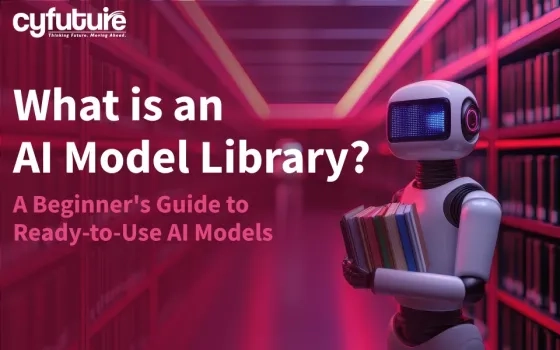Authored by: Bela Kher, Head of Delivery - Xoriant
In an increasingly connected global economy, the opportunities for business growth are vast—but so are the risks. Today’s companies are not just contending with market competition but also facing a turbulent mix of geopolitical tensions, climate disruptions, and rapid technological change. These factors often throw a wrench into even the most well-oiled supply chains.
Yet many businesses continue to rely on outdated approaches, using historical data to make decisions in a world where change is the only constant. When unexpected events like global pandemics, political upheavals, or natural disasters strike, relying solely on past trends is no longer viable. What organizations need is access to dynamic, real-time insights. Enter artificial intelligence and data analytics.
AI is quickly becoming a vital asset in helping companies predict disruptions, react swiftly, and maintain operational stability. This blog dives into the evolving risks facing supply chains and how AI is reshaping the way companies manage them.
The Expanding Risk Landscape in Supply Chains
Geopolitical and Economic Instability
The global supply chain continues to feel the ripple effects of political conflicts and economic shifts. Trade wars, sanctions, military conflicts like the Russia-Ukraine war, and unrest in critical regions have created bottlenecks and disrupted the availability of essential goods.
Climate and Environmental Disruptions
Extreme weather events—floods, fires, hurricanes, and rising sea levels—are becoming more frequent, affecting manufacturing facilities, damaging goods, and delaying transport. These disruptions are driving up logistics costs and causing unforeseen shutdowns.
Digital Vulnerabilities
The digital transformation of supply chains brings efficiency, but also vulnerability. Third-party software flaws, weak security protocols, and compromised devices can expose companies to cyberattacks and data breaches, threatening operational integrity.
Supplier and Transport Challenges
From raw material shortages and equipment breakdowns to labor issues and shifting regulations, supply chain partners face a wide range of challenges. These disruptions can lead to delays, inventory gaps, and dissatisfied customers.
Shortcomings of Traditional Risk Management
Conventional approaches to supply chain risk management rely heavily on hindsight. In today’s volatile environment, this isn’t enough. Manual data collection is slow and error-prone, and the lack of real-time visibility makes it hard to respond effectively to evolving situations.
How AI Revolutionizes Risk Mitigation
AI isn’t just a tool for detection—it’s a proactive partner in forecasting, evaluating, and managing risk at every stage of the supply chain.
1. Forecasting Risks Before They Strike
With predictive analytics, AI scans massive datasets—real-time inputs, historical records, and external trends—to flag potential threats. Whether it’s a supply shortage or an upcoming storm, AI gives organizations a heads-up so they can adjust before the damage is done.
2. Real-Time Alerts and Anomaly Detection
By constantly monitoring input from IoT devices and enterprise systems, AI identifies deviations from normal patterns. Whether it's a dip in production output or a traffic jam on a delivery route, AI can alert teams immediately, helping reduce response time and avoid bigger losses.
3. Smarter Supplier Selection and Monitoring
AI can assess supplier performance using a combination of financial data, past compliance, and operational track records. This risk scoring helps companies choose reliable partners, ensuring fewer hiccups when external pressures mount.
4. Defending Against Cyber Threats
AI can be a frontline defender against digital attacks. It analyzes behavior patterns to identify potential security breaches, isolates threats before they spread, and even evaluates the cybersecurity posture of third-party vendors to avoid weak links in the chain.
5. Guiding Crisis Response and Recovery
AI can help companies respond to crises more intelligently. Whether it’s rerouting shipments around a closed port or simulating alternative inventory strategies during shortages, AI allows businesses to pivot quickly and plan for multiple scenarios in advance.
Applying AI Across the Supply Chain
AI adds value across all stages of the supply chain:
-
Planning: AI refines demand forecasting by factoring in real-time market behavior, socio-economic shifts, and global trends. This prepares companies to respond to changing conditions with agility.
-
Sourcing: AI assists in evaluating suppliers and detecting red flags in their financial and compliance data early. It helps build a more diverse and stable supplier network by identifying alternative sources.
-
Manufacturing: AI predicts equipment failures before they happen, minimizing costly downtimes and enhancing operational resilience.
-
Logistics: From analyzing traffic congestion and geopolitical delays to identifying labor strikes and border wait times, AI helps optimize delivery routes and avoid disruptions.
Challenges of AI-Driven Risk Management
An IDC survey reveals that 40% of supply chain organizations are investing in generative AI to enhance operations and unlock greater business value. Despite its promise, AI is not without hurdles:
-
Data Fragmentation: Many companies still operate in silos, limiting AI’s ability to draw a complete picture of risks across the ecosystem.
-
Bias in AI Models: Poorly curated training data can introduce bias, leading to skewed risk assessments or unfair supplier evaluations.
-
Compatibility with Legacy Systems: Outdated infrastructure often hinders smooth integration of AI tools, slowing down the digital transformation journey.
-
Human-AI Disconnect: Resistance to change can prevent teams from embracing AI. Successful implementation requires collaboration between AI systems and human decision-makers.
The key to overcoming these obstacles lies in a hybrid model—one that combines AI’s computational strengths with human judgment to make thoughtful, data-backed decisions.
What’s Next: The Future of AI in Risk Mitigation
The evolution of AI will further enhance its role in supply chain resilience:
-
Digital Twins: AI-powered replicas of supply chains can help simulate disruptions, plan contingencies, and manage resources more strategically.
-
AI + Blockchain: This powerful duo if AI and blockchain can boost transparency, traceability, and trust across the supply chain while reducing fraud and counterfeit risks.
-
Self-Driving Supply Chains: From automated rerouting to inventory balancing, AI is moving toward enabling fully autonomous supply chain operations.
-
Self-Learning Models: These advanced models learn from every disruption and refine their responses over time, enabling companies to stay one step ahead of the next risk
Final Thoughts
The era of reactive risk management is over. In today’s unpredictable environment, companies must build resilience into their supply chains—and AI is the key to making that happen.
By harnessing AI, businesses gain real-time insights, spot vulnerabilities early, and make informed decisions that keep operations running smoothly. From choosing dependable suppliers to preparing for worst-case scenarios, AI empowers companies to remain steady in the face of uncertainty.
As organizations look to the future, those that invest in AI-driven risk management will be better equipped to navigate disruption, deliver consistently, and earn long-term trust from partners and customers alike.
Author Bio:
Bela Kher-Chitambar is the Head of Emerging Delivery at Xoriant. She is an experienced professional in delivery management, leading large teams in product engineering, application development, and maintenance services within the information technology industry. Her focus has been primarily in the financial services and insurance domains. She has been a delivery manager for product engineering teams, addressing business problems through digital solutions, particularly in the mortgage domain. Additionally, Kher-Chitambar has extensive expertise in delivery management, product engineering, delivery operations, IT service management, and ITIL processes.


















